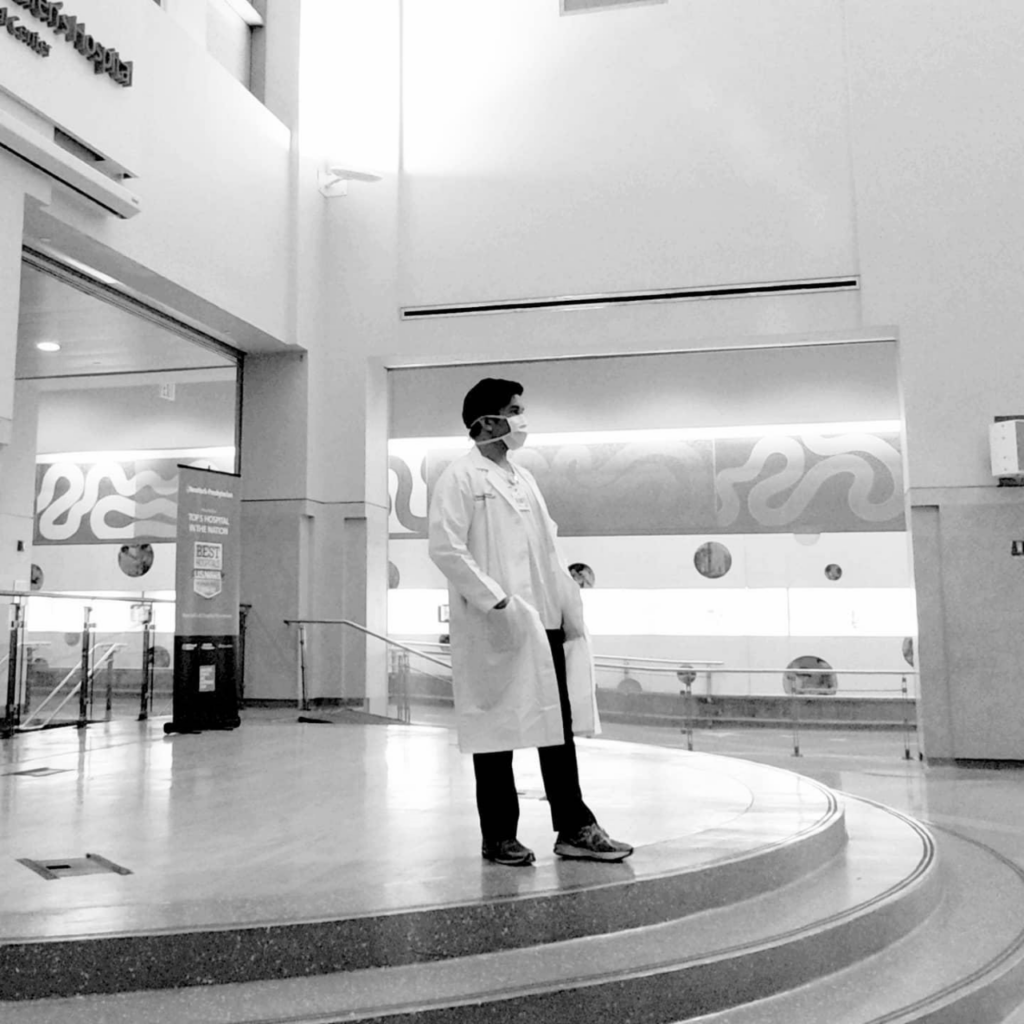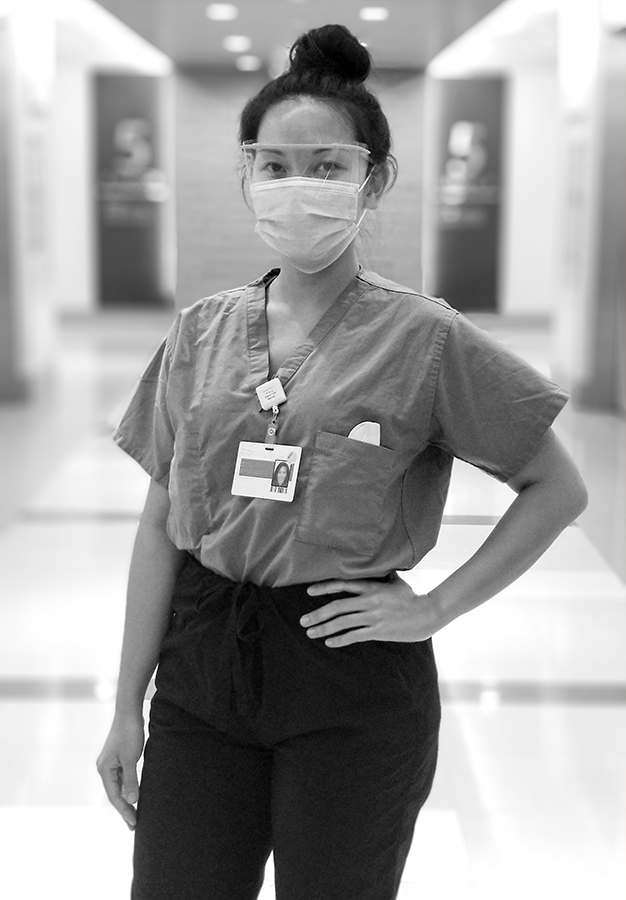COVID-19: On the front lines
Nurses Demonstrate Resiliency and Provide Care During COVID-19 Emergency
To work in health care during a global pandemic is to anticipate, prepare, treat and recalibrate to do it over and over and over again.

(Photo: Lester Castor)
Nursing alumni Lester Castor, BSN’12 (Metro), and Lecille Desamparado, BSN’12 (Metro), work at a hospital in New York. The two have toiled tirelessly to flatten the curve, to support medical staff and to treat and to save patients suffering from COVID-19. The work continues. Castor, a clinical nurse manager for cardiac services, directs, organizes and supervises nursing staff, while Desamparado, a charge nurse in the cardiac intensive-care unit turned COVID-19 intensive-care unit, treats patients directly.
Lester Castor: We are living through history. To experience COVID-19 from inside one of the nation’s top hospitals has been fear-inducing, anxiety-ridden and deeply humbling.
Not too long ago, it seemed like the virus might not even make it to the United States, but as soon as hospital employees heard the words, “We have patient zero,” things got real.
The hospital began emergency preparations, personal protective equipment (PPE) became a hot commodity and fear and panic felt palpable in the hospital hallways.
We increased hospital capacity for intensive-care unit (ICU) beds tremendously, turning single ICU rooms into doubles, and shutting down operating suites and turning them into negative-pressure rooms, capable of holding four COVID-19 patients each.
Providing support and guidance to frontline employees became difficult, too. Nurses in areas or units temporarily shutdown were redeployed to help with ICU-ventilated COVID-19 patients. Health care providers experienced burnout as patients started dying.
Lecille Desamparado: Fear is what I remember seeing in everyone’s eyes as we were getting ready for the war with COVID-19 — the invisible enemy. Nurses scrambled into their shifts, pestering managers and clerks for N95 masks.

(Photo: Courtesy of Lecille Desamparado)
Some saved the masks and reused the same N95 for three shifts, telling ourselves it was better to reuse than to have no N95 at all. In the beginning, it seemed like our hospital was rationing PPE, but as the days went by, supplies dwindled at a fast rate. It came to a devastating low point when we had to start covering chunks of body parts with tape, because we had no more shoe covers.
On social media, we asked families, friends and organizations to donate PPE.
Then came the roughest days. I was in charge of my ICU on one of the hardest shifts of my career. It felt like walking into a war zone. We had six admissions back-to-back. We were drowning, trying to keep pace and working harder than ever together — trying to get lines, drips and ventilators ready. We were overwhelmed. We only had one resource nurse to help us with our patients, grabbing extra bags for drips and charting. No one took a break except to use the bathroom or grab a sip of water. Somehow we were able to make it through the surge, but it came at a cost: loss of life. It took an emotional toll on the team. This pandemic is traumatizing for many, if not all of us. We felt defeated that shift knowing that even our best wasn’t enough to save every precious life.
It felt like a dark tunnel as the days went by. But there was light. One day, I walked past a patient, backtracked and yelled, ‘Oh my God, you’re extubated!’ It brought me to tears as we locked eyes through the glass wall. He was crying, expressing gratitude. He said he didn’t think he was going to make it; he was so thankful for how much time and effort the staff put into taking care of him. As he was being discharged, I felt overcome with joy. This was only one of the victories we had in our ICU, and it instilled hope in the entire team and in me. Good days have overpowered bad ones.
Lester Castor: The resiliency of health care workers has been awe-inspiring. Teamwork and camaraderie broke down preexisting silos, and we worked together. Nurses volunteered for overtime to assist other units, and some went above and beyond in the intensive-care units. The hospital offered daily messages of inspiration and hope to staff. The internal hospital website broadcast video messages from hospital leaders, and divisions held staff debriefings via Zoom to discuss getting through the pandemic together.
And we currently are. We still are. We will get through these rough times and return to humanity and normalcy. Together.